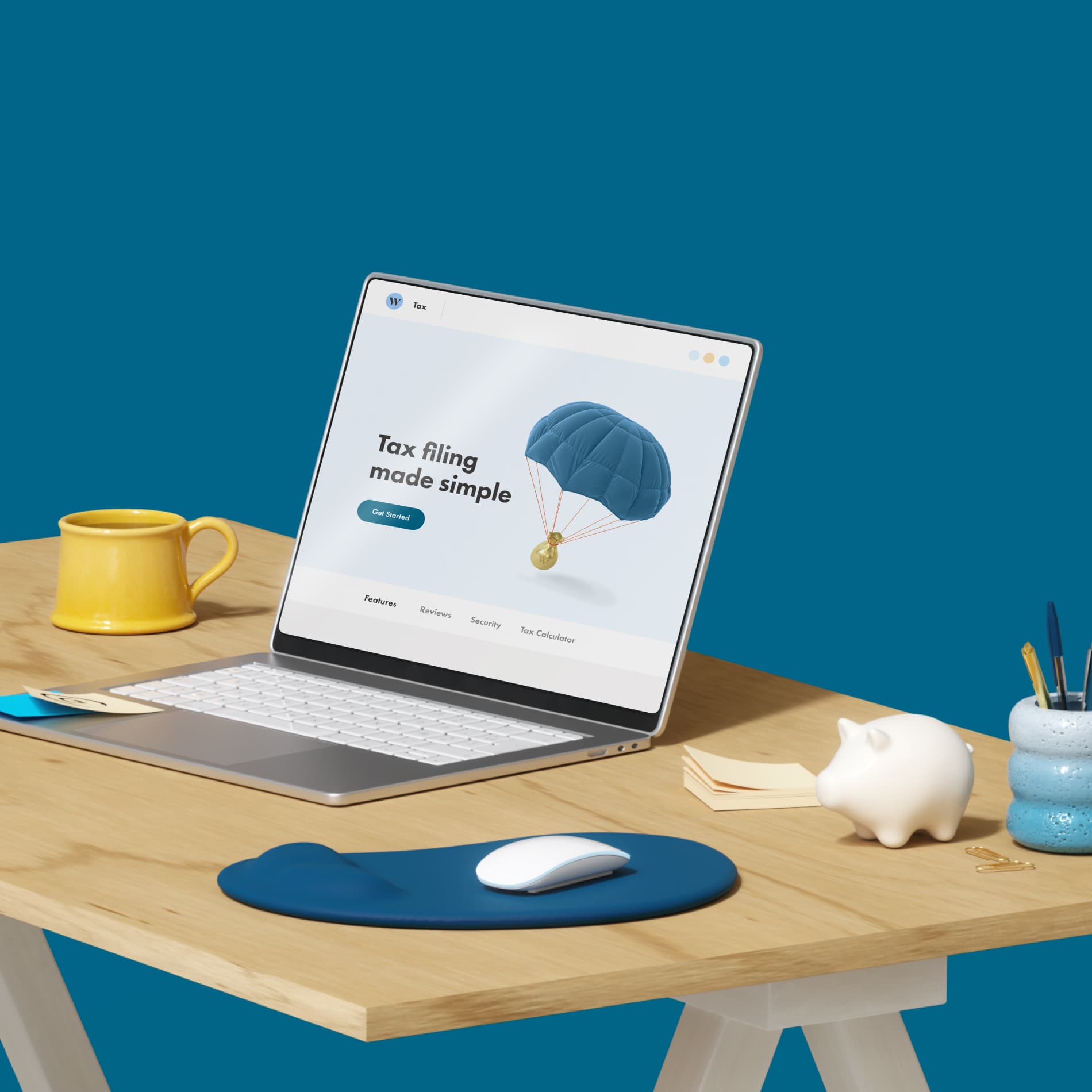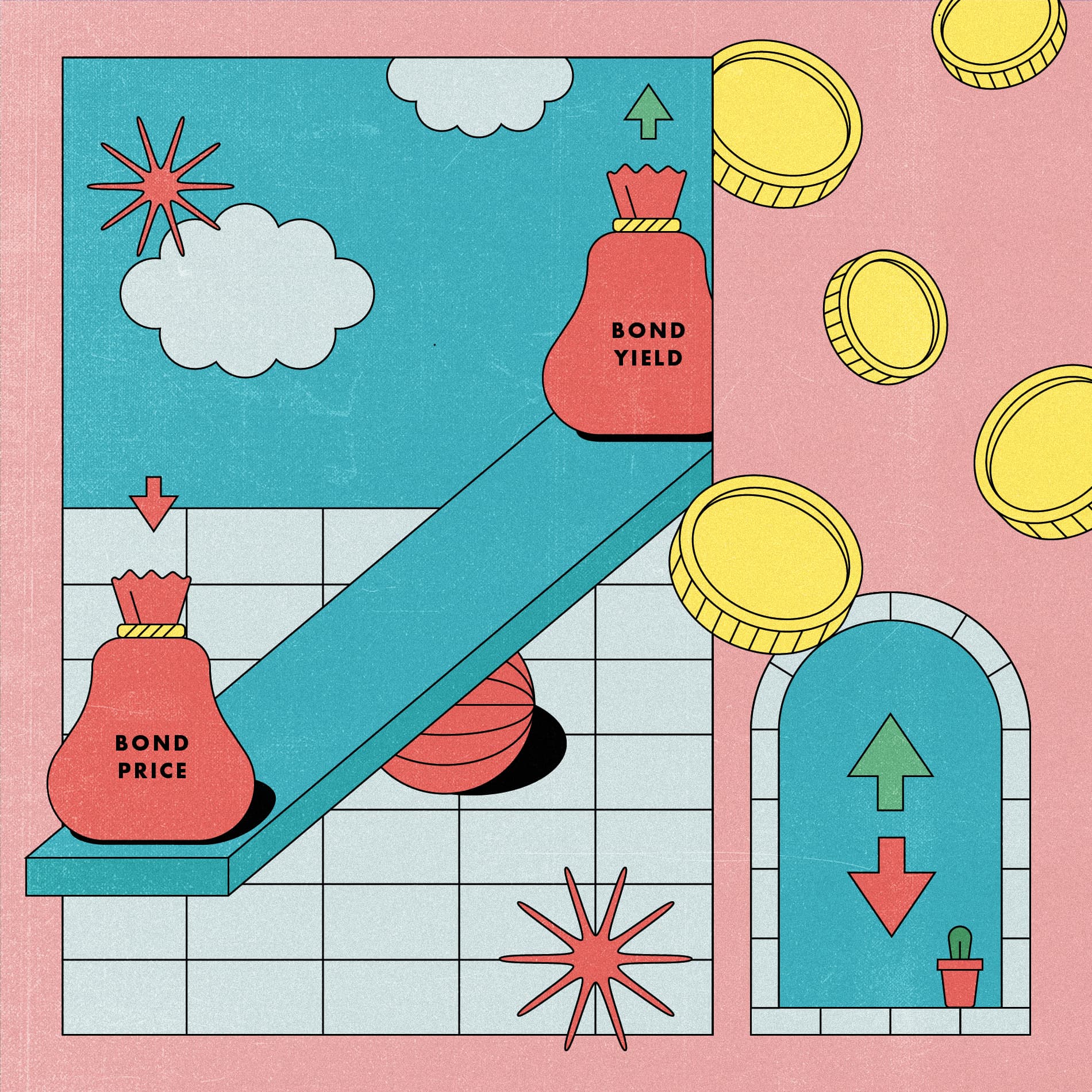Finance for Humans
Canadians Are Keeping Their Money in Cash. It’s Risky.
There’s more cash on the sidelines in Canada than any time in recent memory. Here’s how to know when, and how, to get back into the market.
Wealthsimple makes powerful financial tools to help you grow and manage your money. Learn more
People do lots of stuff with their money. Spend it, of course. Pay for their rent and car and the occasional vacation to see the world’s largest burrito (maybe that’s just us?). And then (we hope) people use some of their money to invest, and the rest they keep on hand for immediate needs and emergencies. Usually, investors only keep about 30% to 35% of their money in so-called cash accounts — chequings, savings, etc. But right now, that’s different. After the pandemic economy, after the fairly extreme volatility of the markets the past few months (bear market anyone?) people seem to be hoarding their cash. In the U.S., the best guess is that cash accounts are currently about 40% of investors' holdings, according to one estimate. In Canada, the amount of money in high-interest cash ETFs grew by about 30% over the pandemic.
Why are Canadians stashing more money in cash accounts? Most likely because they’re scared to invest. And that’s understandable — the Nasdaq is down nearly 19% year to date, and the S&P 500 is down nearly 12%. And because of the volatility (there have been rallies and dives), it’s hard to know what happens next. (Note: it’s always hard to know what happens next.) The question anyone sitting on extra cash should be asking is: what’s the smartest thing to do with my money now, given the state of the markets and the world?
Let’s dig in.
Should you just hold onto it?
It’s probably tempting: stick it under your pillowcase — or leave it in your savings account. Like we mentioned above, that seems to be an increasingly popular option right now. And it’s understandable:
Life is exhaustingly expensive!
It’s hard to know how much stuff will cost in future (thanks, inflation)
Rising interest rates are making mortgages (and other things) more expensive
We dipped into bear market territory
That scary market might have you worried about your job, or your financial situation
And, oh, war, climate change, and the million other uncertainties

Sign up for our weekly non-boring newsletter about money, markets, and more.
By providing your email, you are consenting to receive communications from Wealthsimple Media Inc. Visit our Privacy Policy for more info, or contact us at privacy@wealthsimple.com or 80 Spadina Ave., Toronto, ON.
It’s all understandable. But the question is: what’s the cost of staying in cash? Is it smart to hang on until things seem more certain? Or would it be better to just dive back in?
The answer, historically, is that it’s almost always been smarter to invest. But how do you get back in?
Figure out when you’ll need your money
The first thing you should do is look at when you’re going to need the money that you’re sitting on. If you’re going to need all your cash sooner rather than later to take care of your living expenses — say, for stuff like rent or groceries — keep doing what you’re doing. Most experts say you should keep a few months’ worth of living expenses in cash, in case of an emergency.
Know that cash is, in the long term, a money-losing proposition
But if you’ve got enough on hand that you can put some of it away and not think about it for a little while, holding onto cash doesn’t really make sense as a long-term way to build wealth. A lot of people think that holding onto cash is eliminating the risk that you’ll lose money. But that’s not actually true. Thanks to inflation (yes, that jerk again) the value of your savings will inevitably decrease over time. Interest helps, but the rates for savings accounts can’t keep up with the rise in the cost of living.
Recommended for you
Just because a lot of people are sitting out of the market doesn’t mean it’s smart to do so. Remember those statistics we trotted out about how many people are holding onto cash? That means fewer people are buying assets — which sends their prices down — and that can mean bigger rewards when people decide it’s time to get back into the market. That’s happened before during market crashes. After the S&P 500 bottomed out in 2009, it rallied, nearly doubling in the next two years. That doesn’t mean that will happen this time (the bottom might be a long ways off from here, and not even the professionals will try to time where that bottom is). But in general, markets go up over time.
According to a study from MIT’s financial engineering lab, around 30% of people who panic-sold during a downturn never returned to investing. That’s a pretty sure-fire way for people to lock in their losses for good.
Don’t try to time the bottom of the market. Even the pros don’t try to do that — it’s pretty much impossible. Instead, let’s talk about how to make your re-entry a little less stressful. As with breakups, getting back into investing is probably more about what you have control over — your comfort level — rather than any external circumstances. Luckily, there are a few ways to help make that jump back in a little less stressful.
Make a plan to get back in
If you’re ready, great. If you’re not and want to take a breather and wait for the market to turn, that can work. The key is to make a plan in advance and stick to it. That way you’re not stalling until the perfect moment hits (that’s a recipe for buying in at peak, which nobody wants to do). If it would help, you can choose a rally point you’re comfortable with — say, 5% up. Whatever you decide, stick to it, and know that it’s not a perfect system. Markets go up and down, and a small rally doesn’t mean the rollercoaster is over, so keep that in mind heading in. And know that, as long as markets have been around, they tend to go up over time (sounds familiar, right?).
Take the decision-making out
A good way to avoid trying to time the market (which, according to studies, usually makes for worse returns) is to set up an automatic deposit, so you invest the same amount of money every month. Then don’t worry about it — only check on your portfolio periodically. This way, you’re also getting a variety of entry prices while ensuring that you’re consistently contributing to meet your savings goals — and taking the emotion out of the decision of when to jump back in. The strategy’s called dollar-cost averaging, meaning you invest a small amount on a regular schedule, regardless of the price of whatever asset you’re buying.
But, remember, diversification is always good
Sure, there have been rare times when cash has been the best performing asset class. It happened pretty recently, in 2018. Also, 1981, and 1973. But those circumstances don’t tend to last very long. In fact, no asset class tends to stay on top forever — whatever’s the best performer now will most likely not stay that way. That’s why a mix is important: it helps insulate you from asset, or geographic, or industry-specific downturns, to ensure your portfolio stays strong in the long run.
Diversification, and time, are the best ways to make sure your investments will pay off. It’s fine to keep some loonies on hand. But if you’re starting to stuff your mattress with Robert Bordens, maybe come back and take another look at this article.
Wealthsimple's education team is made up of writers and financial experts dedicated to making the world of finance easy to understand and not-at-all boring to read.
The content on this site is produced by Wealthsimple Media Inc. and is for informational purposes only. The content is not intended to be investment advice or any other kind of professional advice. Before taking any action based on this content you should consult a professional. We do not endorse any third parties referenced on this site. When you invest, your money is at risk and it is possible that you may lose some or all of your investment. Past performance is not a guarantee of future results. Historical returns, hypothetical returns, expected returns and images included in this content are for illustrative purposes only.









